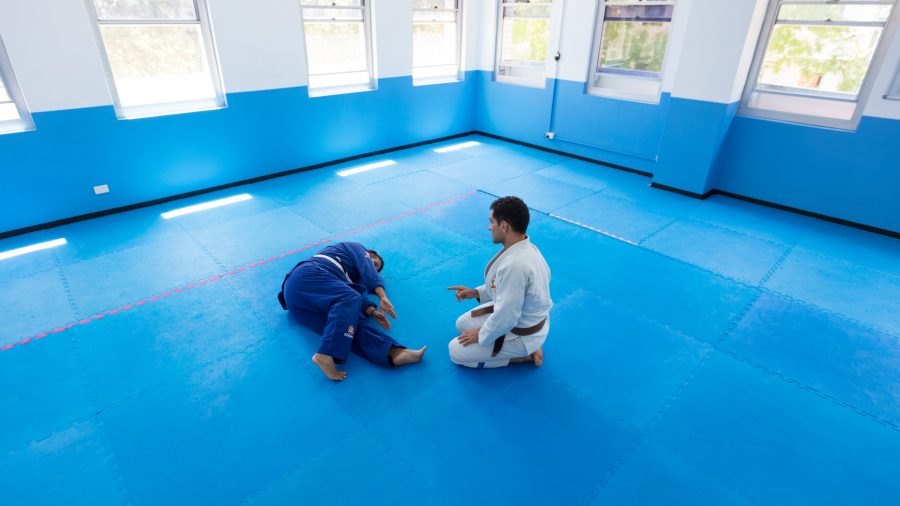You’re Sidelined. Now What?
You live and breathe jiu jitsu. You wake up doing technical stand ups out of bed. Co-workers say hi and your instinct is to respond with ‘oss’. Your Chrome is filled with jiu jitsu articles to read, and most waking moments of your life are dedicated to the gentle art.
Who said you’re obsessed? ‘That’s just a word the lazy use to describe the dedicated!’ It’s in your blood, and your veins, and it’s what makes your world go around.
So when you find yourself out injured with no chance of doing jiu jitsu, that world can easily come crashing down.
Physical ailments very quickly becomes mental anguish. Every part of yourself wants to don the gi and jump on the mats to train. You get antsy, and no amount of Youtube videos will help you. You hate being on the sidelines, and so does everybody else.
Injuries Suck
Beyond your jiu jitsu hysteria, there is a life outside of the dojo. Within this life, you need to do everyday things, like work, drive, and be with your family, and shower. You don’t appreciate the value of mobility and pain free movement until these liberties are threatened by an injury.
Have you ever attempted to drive a manual car with a dislocated left shoulder? Or push in a clutch with a torqued left knee? I have. It’s frustrating, humiliating, and extremely difficult. It makes you want to flash a wand and make everything better. Then you wake up, only with the real pain.
Don’t Get Injured
You feel the pain more than ever when you’re prevented from being on the mats. You hate having to sit out and watch when you could be learning, and growing, and having bundles of fun.
Step back and consider your track record. Is this a one-off injury or does this reflect a pattern for you? Accidents always happen, and there isn’t much you can do about them after the event. But regular injury doesn’t need to happen. Actually, it’s stupid, and borderline insane.

Change is Hard
Most jiu jitsu injuries are the result of boisterous enthusiasm coupled with a lack of knowledge.
You’re not mindful of your movements. Your partners don’t look after you enough. Your gym doesn’t know what sustainability means. There’s a litany of reasons to explain you being hurt. None of them help you.
You’re young enough to rebound now, but consider what happens in 10 years time, when you don’t bounce back so fast.
How To Yield
The art of yielding has been used by many wise martial artists as a way to train safely and sustainably for centuries. You need to learn it. It’s imperative that you understand both the philosophy of the yield, and the practice.
The Webster Dictionary defines ‘yield’ as to give way to arguments, demands, or pressure.
There are times on the mats where you ought to defend someone’s moves, or counter them. In those moments when your leg is stuck in an odd position, or your shoulder is being yanked in one direction, or the submission is locked in and there’s a very slight chance you can escape, yield to your opponent, and to the jiu jitsu.
Give up a position. Be swept. Tap early, and even if it isn’t totally locked in. Initially it will hurt to concede earlier than you need to, but this practice will help you minimise injuries, and will leave you more capable of jiu jitsu for a lifetime.
Prehab vs Rehab
“The definition of insanity is doing the same thing over and over and expecting a different result.”
Albert Einstein
So you train hard, then you get injured, then you look to rehabilitate the injury so you can come back and do the thing that got you injured. It’s a very common loop to find yourself in. And it’s what gets you in trouble in the first place.
A different way: prehabilitation.
When you do prehabilitation you diligently do the exercises that will prevent injuries, not merely fix them. It’s the active way to avoid being hurt in jiu jitsu.
Forms of prehabilitation include activities that promote healing, and recovery. It includes a solid, complete warm up before you train, and stretching and moving in the morning. It includes joint mobility throughout the day as a way to promote movement.
It may include a massage on the weekend, a session of yoga, some hanging, or even a float in a sensory deprivation tank. There are a myriad of ways to look after yourself even when you aren’t injured. Find those ways and bask in the relaxation. Your muscles, and your joints, and your brain, and every part of you will thank you.
Be Intelligent
I know you just want the injury to be gone so you can get back to normal life. But sometimes you want what you can’t have. You did the damage and now you need to ride it out.
The best thing you can do is learn from your mistakes. Whether you are injured or not, use your experiences to help you make better ones. There are always ways to optimise your training if you’d only be happy to do some things a little different.
While our objective in jiu jitsu is to hyperextend limbs and asphyxiate our prey, we can do this in a way that is sensible, and smart. This means that we can train regularly, and always, keep the trauma to a minimum, and enjoy learning Gracie Brazilian Jiu Jitsu for a lifetime.


